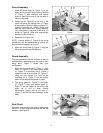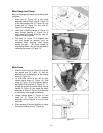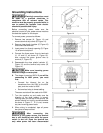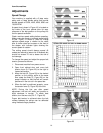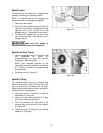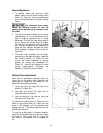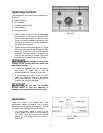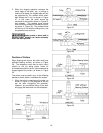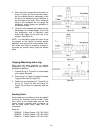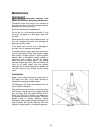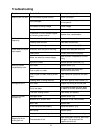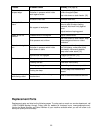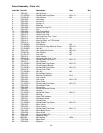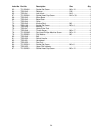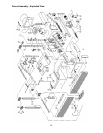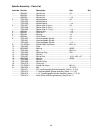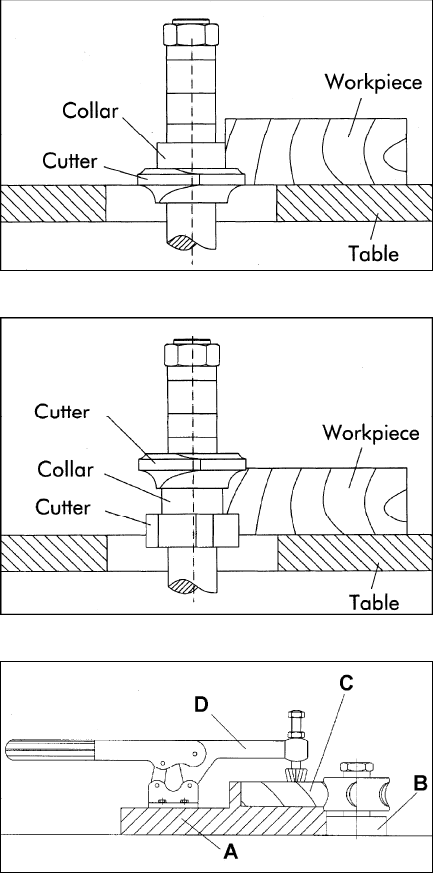
19
2. When the collar is used above the cutter, as
shown in Figure 32, the cut cannot be seen,
but this method offers an advantage in that
the cut is not affected by slight variations in
the thickness of the stock. Also, accidental
lifting of the workpiece will not gouge the
workpiece; simply repeat the operation to
correct the mistake.
3. Using the collar between two cutters has the
advantages and disadvantages of the first
two procedures, and is frequently used
where both edges of the work are to be
molded. See Figure 33.
NOTE: It is advisable to place the cutter as low
as possible on the spindle to reduce spindle
deflection and ensure the best possible finish.
Also make sure that the contacting surfaces of
the cutter are smooth, sharp, clean and without
dents.
Copying (Machining with a Jig)
When using the same procedure on multiple
workpieces, a jig or template can be made to
facilitate the operation.
1. Prepare the jig (A, Figure 34) to accomodate
your original workpiece.
2. Place the jig (A, Figure 34) against the table
ring guide shoulder (B, Figure 34).
3. Fasten the new workpiece (C, Figure 34) on
the jig (A, Figure 34) with the clamp (D,
Figure 34) and push the assembly past the
cutter.
Feeding Stock
Power feeders are available and can be ordered
by calling our customer service number. These
units mount to the shaper table and will help
ensure smooth, consistent feed of material, as
well as keep hands safely away from the
cutterhead.
Stock No.
1790800K 3-Wheel Feeder, 1HP, 3Ph, 230V
1790810K 3-Wheel Feeder, 1HP, 3Ph, 460V
1790811K 4-Wheel Feeder, 1HP, 3Ph, 230V
Figure 32
Figure 33
Figure 34



